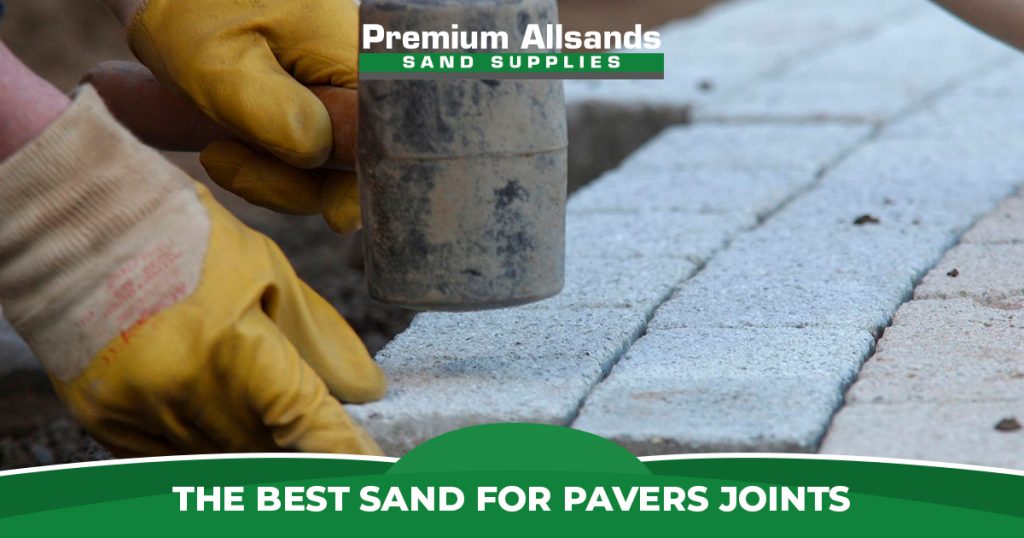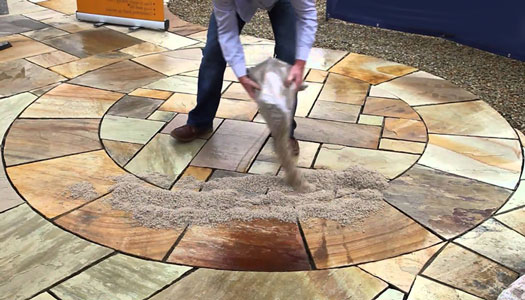
Pavers have a sturdy surface and are fit for driveways, patios, or walkways. It offers several advantages over traditional concrete or asphalt surfaces:
- For one, they are much more durable and can withstand heavy traffic without cracking or breaking.
- They are also low maintenance and easy to repair; if a paver is damaged, it can simply be replaced without having to repair the entire surface.
- Pavers are also available in a wide range of colours, styles, and textures, making them an attractive option for any home or business.
- In addition, pavers can help to reduce noise pollution and minimise the risk of slip-and-fall accidents.
As a result, pavers offer several significant benefits over more traditional surface materials.
However, pavers are only as strong as their foundations. The sturdiness is greatly affected by the foundation that they are laid on. This is where jointing sand comes into role.
What is Jointing Sand?
Sand that goes between pavers is known as jointing sand, and its purpose is to fill the joints between pavers and prevent weeds from growing. For the jointing sand to be effective, it needs to be dry and fine-grained. The sand should also be loose so that it can be easily swept into the joints.
While many types of sand can be used for jointing, play sand or masonry sand is typically the best choice.
Jointing sand is usually applied after the pavers have been installed and the area has been cleaned. Once the sand has been added, it’s important to compact the pavers so that the joints are tightly packed. By taking these steps, you can help ensure that your pavers will last for many years to come.
What Is the Best Sand for Pavers?

There are a few things to consider when choosing the best sand for pavers.
- The Purpose of the Sand
Whether it will be used for sealing paver joints or simply as a decorative element. - The Particle Size
Smaller particles will create a smoother surface, while larger ones can provide better drainage. - The Colour of the Sand
The way it will coordinate with the pavers themselves. - The Rough Texture and Granular Edges of the Grain
It will have to grind together when compacted creating a highly stable locking effect. This prevents erosion in the future and inhibits movement.
While many types of sand can are used for pavers, one of the best is polymeric sand (also called paving sand). This type of sand is specifically designed for sealing paver joints. And it contains binders that help to keep the sand in place.
Polymeric sand is available in a variety of colours, so you can easily find one that coordinates with your pavers. It’s important to note that this type of sand must be dampened before use, so be sure to follow the manufacturer’s instructions carefully.
Kiln-dried sand is also often used for sealing paver joints because it is very fine and free of impurities. The sand can be tightly tamped into the joints, creating a barrier against water and dirt. It also dries quickly, so there is less risk of staining the pavers or attracting insects.
Premium Allsands Has the Best Paving Sand in Perth
Anytime you are dealing with paving, you must have the best quality paver joint sand that you can find. That is why at Premium Allsands, we only stock the highest quality paver sand. Our paver joint sand is perfect for a variety of applications, including sealing paver joints.
It is also great for use as general-purpose paver sand. Paver joint sand is an essential component of any paving project, and we are proud to offer the best sealing paver sand in Perth.
If you are looking for premium quality paver joint sand, look no further than Premium Allsands. We are the experts in sealing paver joints, and we can help you get the perfect results for your next paving project.



